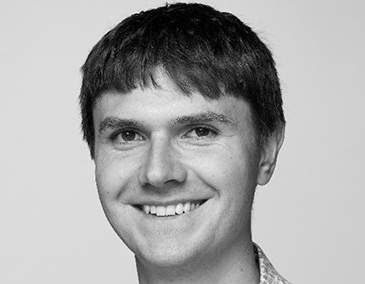What it's like to be part of I'm a Scientist, get me out of Here - hints, tips and experiences

Written by Sam Smith, Postdoctoral Fellow at the Centre for Cancer Prevention, School of Medicine and Dentistry
I decided to submit an application to be on ‘I’m a Scientist, get me out of here!’ late last year. For those of you who are unaware of the programme, it is a Wellcome Trust funded public engagement exercise to give secondary school children the opportunity to speak with scientists from a range of different topic areas. The discussion takes place online during one of their science lessons, allowing the scientists to engage children with their research while not giving up more than an hour a day for a couple of weeks. A range of different schools from across the country are involved, and the organisation tries to encourage your own school to become involved too.
In the application for ‘I’m a scientist’, you are asked to describe yourself and your research in a couple of sentences. My background is in health psychology, and so I decided to emphasise my interest in health behaviours (such as smoking and exercise), as I find that is what people are most interested in when I speak to them about what I do. The programme is broken into topic areas, and as a result of my description I was chosen to be part of the ‘Fat Zone’. At first, this was a daunting task as I know next to nothing about the topic of fat. Although my previous research group had an interest in energy balance, my knowledge of the area was not good enough to fool 12-14 year olds! In the run up to the opening chat, I did some revision, spoke to some colleagues, closed my eyes and hoped for the best.
I’ll be honest and say that I was slightly nervous to begin with. The chat started slowly as the children logged in, and they were largely silent aside from a few hellos. Easy, I thought. I can just describe a bit about what I do, and they can ask me anything they are unsure of. Wrong. The questions started to come thick and fast, and after 15 minutes my hands were aching and couldn’t keep up with their pace of typing! The questions ranged from the general (favourite subject at school) to the specific (why is body weight linked with cancer). Trying to make sure you are providing accurate information, while also answering all the questions directed at you is a daunting task. But it was a brilliant, and often rather humorous, experience. The 45 minute slot went by like a shot, and I was back to work straight after.
I, and the other scientists repeated this exercise one or twice a day for two weeks. There was no pressure to commit much beyond an hour a day, and so it worked nicely alongside my existing workload. It had major benefits for me to; it taught me how to explain a topic in more concise terms without losing accuracy and the interest of the person you are speaking to. More selfishly, I was able to list it as an output on my current funding as a demonstration of my efforts to engage with the public. Finally, I was given a pretty great mug for finishing in 3rd place!
If you are interested in applying to a future series, I can strongly recommend it. When planning your application, think long and hard about how you describe yourself and your research. The children and their teachers really do read the profiles carefully, and frequently asked me about what I had written. Think carefully too about what you plan to spend the £500 winnings on. I feel you are more likely to get picked if you choose to spend the money on an event that children can relate to (e.g. a school visit to your laboratory), than on something they are less involved in. Finally, do not be concerned that the topics covered are not in your area of interest; I still know very little about fat but was able to contribute to the conversation and impart some knowledge on the next generation!
And importantly, have fun!
I’m a Scientist is an X Factor style competition for scientists, where students are the judges. 5 scientists put up a profile, answer questions and have live online text-based chats with school science students. Students vote and the winning scientist gets £500 to spend on more science communication.
The event runs over 2 weeks in March, June & November. There will be around an hour of live text chats each day and an hour answering questions. Apply here.
You can also view other opportunities to take part in public engagement on our website here.
Written by Sam Smith
Centre for Cancer Prevention
School of Medicine and Dentistry